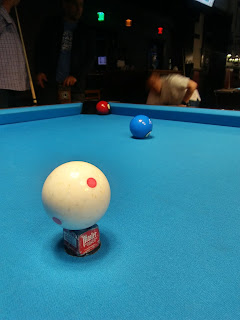What I Think I Am vs. What I Want To Be - Public Opinion Matters
I've gone around the block and come to an undeniable truth: public opinion matters. What your friends think about you, your life, your mate, should be noted.
What you do with this information is not so cut-and-dried (that's a farming term, if you didn't know.) Plan on continuing the discussion.
Public opinion matters because our American society is a complex amalgam, no matter how badly certain people don't want to see it that way. You can use the metaphor macadam if the other reminds you of uncomfortable dental visits, but I sort of like the idea that there's an element blended into the mix which is unhealthy, like mercury. Macadam may be more accurate in describing America, as it's a collection of disparate objects which have settled and compressed into one collective substance which is comprised of individuals but becomes another entity in toto. Y tú también.
And that's my point here: Public opinion of you helps you determine where you fit into society. How people react to you can signal that you have habits which you should mitigate, or that you're not participating in the layer of society which can best appreciate you. Take your time with this assessment, because both options are probably true.
Really rough example: if you are driving against all other traffic, you should probably be driving on the opposite side of the highway. If you're in a parking lot and everyone's making fun of your car, it's probably them, not you. In the latter scenario you could choose to park near other cars like yours, or choose to stand up for your car, or you could realise it's a just parking lot and go about your business that necessitated parking in the first place.
Opinions of your friends can be another matter, or maybe the same pattern fits. Your friends may observe something about you which you can't see from the inside. They probably don't consciously think about which habits they encourage and which they advise against. They will give you advice, though.
Here's the thing: when your friends advise, they may be thinking about what works for them, not what's best for you. Are they promoting your best self, or preserving homeostasis? If the latter, does their suggestion fit what is best for you? It might.
If a friend points out to you something you didn't see, the act of bringing it to your attention is what's important here. The rest of the work is up to you. You can question further in order to compile decision-making data. Please take care not to assign any labels of right or wrong to the data until you have collected as much as you can. When a person you've trusted up until this moment delivers a message you don't want to hear, a knee-jerk will try to be the reaction (that's a medical term, if you didn't know.)
Pull back, recede; reassess.
The list of things to be reassessed are:
What you do with this information is not so cut-and-dried (that's a farming term, if you didn't know.) Plan on continuing the discussion.
Public opinion matters because our American society is a complex amalgam, no matter how badly certain people don't want to see it that way. You can use the metaphor macadam if the other reminds you of uncomfortable dental visits, but I sort of like the idea that there's an element blended into the mix which is unhealthy, like mercury. Macadam may be more accurate in describing America, as it's a collection of disparate objects which have settled and compressed into one collective substance which is comprised of individuals but becomes another entity in toto. Y tú también.
And that's my point here: Public opinion of you helps you determine where you fit into society. How people react to you can signal that you have habits which you should mitigate, or that you're not participating in the layer of society which can best appreciate you. Take your time with this assessment, because both options are probably true.
Really rough example: if you are driving against all other traffic, you should probably be driving on the opposite side of the highway. If you're in a parking lot and everyone's making fun of your car, it's probably them, not you. In the latter scenario you could choose to park near other cars like yours, or choose to stand up for your car, or you could realise it's a just parking lot and go about your business that necessitated parking in the first place.
Opinions of your friends can be another matter, or maybe the same pattern fits. Your friends may observe something about you which you can't see from the inside. They probably don't consciously think about which habits they encourage and which they advise against. They will give you advice, though.
Here's the thing: when your friends advise, they may be thinking about what works for them, not what's best for you. Are they promoting your best self, or preserving homeostasis? If the latter, does their suggestion fit what is best for you? It might.
If a friend points out to you something you didn't see, the act of bringing it to your attention is what's important here. The rest of the work is up to you. You can question further in order to compile decision-making data. Please take care not to assign any labels of right or wrong to the data until you have collected as much as you can. When a person you've trusted up until this moment delivers a message you don't want to hear, a knee-jerk will try to be the reaction (that's a medical term, if you didn't know.)
Pull back, recede; reassess.
The list of things to be reassessed are:
- your behaviour
- your observations
- your friendship with the source of the information
- your community
- your decision-making process
You need a minute to process the new information; just say that, and then go do it. How important is it to remain a part of the community that has questioned your actions? Have the dynamics of the friendship changed? Have your friends just been far too patient for too long, or do they have selfish motives?
Which option serves your goal of becoming your best self?










